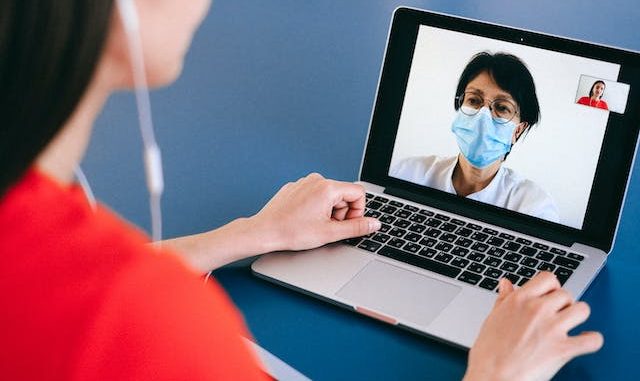
The past few years have not been kind to your mental, physical, and emotional well-being. What started as a bat virus that originated in China, soon became a global pandemic that led to government-mandated stay-at-home orders, occupational furloughs, free financial subsidizing, small business shutdowns, unemployment, masking, homeschooling, isolation, untested vaccines, rampant alcoholism and substance abuse, anxiety on a massive scale, and a flu that could be potentially deadly to the elderly and the already sickly. In a word, COVID-19 not only took its physical toll, but it also took its mental and emotional toll.
However, out of the bad came some good. One of those was telehealth psychotherapy. In theory, if you couldn’t see a psychotherapist in person due to government regulation, you could do the next best thing. That is, speak to your doctor via Zoom call. Says the pros at Living Well Psychotherapy, telehealth psychotherapy, IL, your location or your busy schedule, or even a pandemic should not limit your access to the best mental health services available. Research conducted on a national scale has proven that teletherapy and psychotherapy offer effective psychological and emotional care when it’s impossible to receive in-person treatment.
But now that we’re living in a post-pandemic world and for the most part, life has returned to a new normal, how effective is telehealth psychotherapy as we enter the mid-2020s?
According to a recent report by the American Psychological Association, in 2020 and 2021, with 90 percent of the US under what would prove destructive stay-at-home mandates, telepsychology fast became the only viable option available for people who desperately required mental and emotional health care. In turn, Medicare, Medicaid, and private insurance were said to have relaxed the rules for receiving telehealth treatment.
Says a clinical psychologist who heads the Treatment and Preventive Intervention Research Branch at the National Institute of Mental Health (NIMH), the pandemic accelerated the shift to telehealth which meant the entire idea of occupying a waiting room and then sitting face-to-face with a psychotherapist was turned inside out.
But even in today’s non-pandemic times, remote health care means providers can reach more people which includes persons who live in remote locations or those who don’t have childcare or even lack transportation. It also helps with addressing any kind of stigma that people attach to seeking out the services of a psychotherapist or psychologist.
For people who have never sought out the services of mental health care providers due to a variety of barriers, the option of online services can serve as an excellent entry into the system.
The Research Thus Far
Telehealth psychotherapy is not a new concept. Not by a long shot. In fact, it’s said to date all the way back to the 1960s when mental health care providers began discussing the viability of delivering care via video, phone, or both. In essence, telehealth arose out of a need to treat difficult-to-reach populations.
For example, when a forensic psychologist made an assessment of a man or woman incarcerated in prison, they would refer to them as “geographically distanced” and in need of specialized care which would include telehealth. Since that time, remote or telehealth psychotherapy has also been tested on military veterans and largely demonstrated that it can be an effective way to treat the mentally and emotionally sick, or so claims the U.S. Department of Veterans Affairs.
According to the Director of the Center for Behavioral Intervention Technologies and Northwestern University, generally speaking, telehealth psychotherapy is just as effective as in-person mental health care. Even retention rates are said to be higher.
Telehealth Via the Telephone
However, questions remain regarding audio-only care. Is telephone care as effective as videoconferencing care? While the question remains largely unanswered by healthcare providers, insurers have made their minds up by not reimbursing patients for telephone-only treatment. But temporary approval from Medicaid, Medicare, and private insurers was said to be granted during the pandemic.
Telephone psychotherapy is said to be utilized as a last-resort treatment for populations who possess low resources which means they have no access to a reliable internet connection or the use of a smartphone, or so states the Senior Director for Practice Transformation and Quality at the APA.
In the end, one thing is for certain, the need for mental health care in these trying times of financial strain, political instability, constant global conflict, food and cash insecurity, spiking crime, and more, is only growing. What’s also certain is that telehealth psychotherapy is here to stay. For those people suffering from mental and emotional strain, a telehealth visit with a reputable psychologist just might be the anxiety-reducing curative they are searching for.
